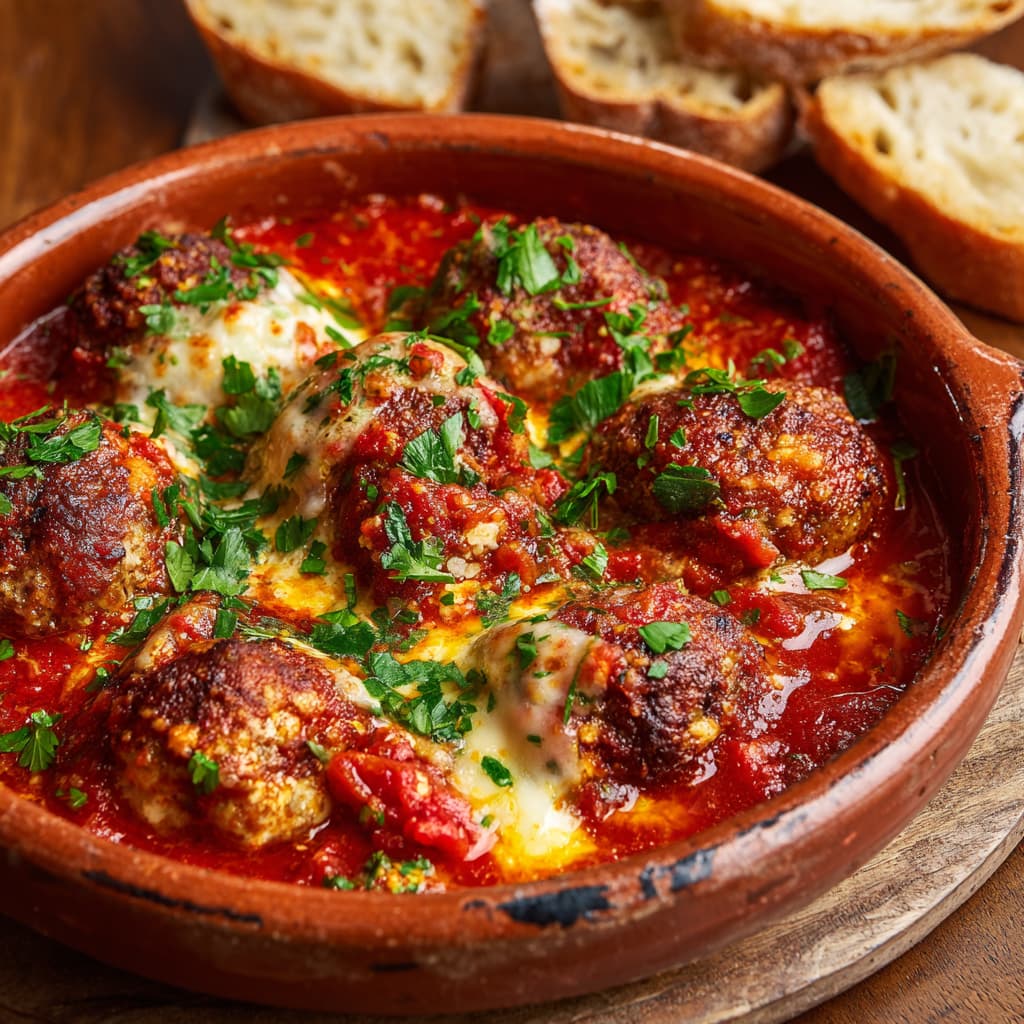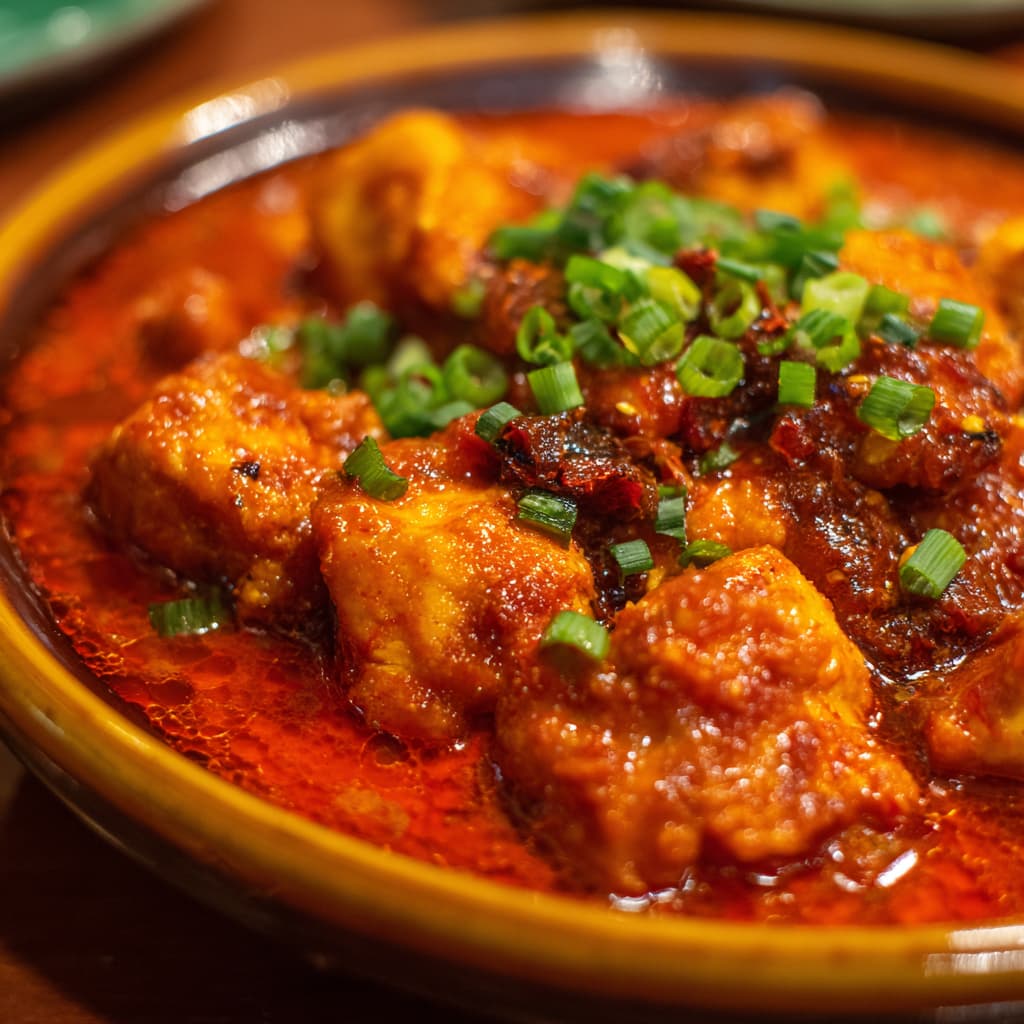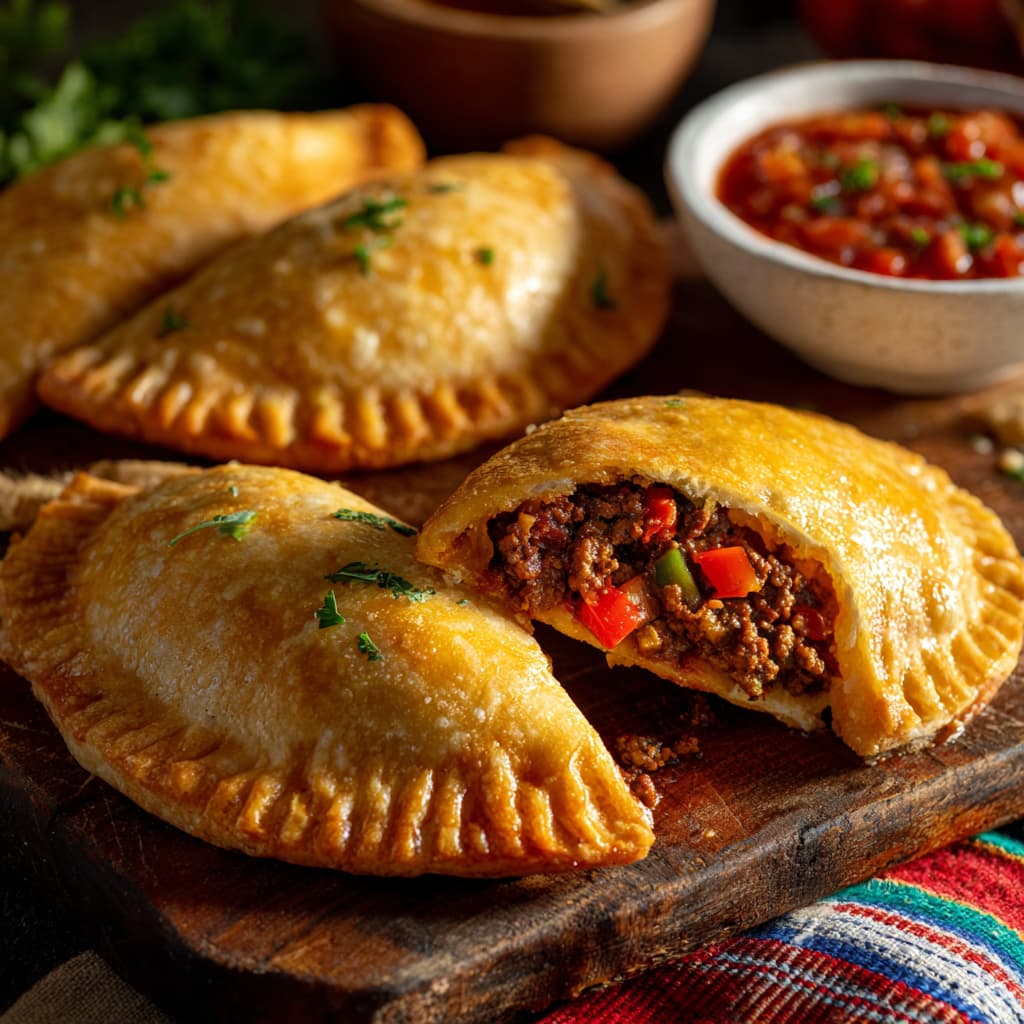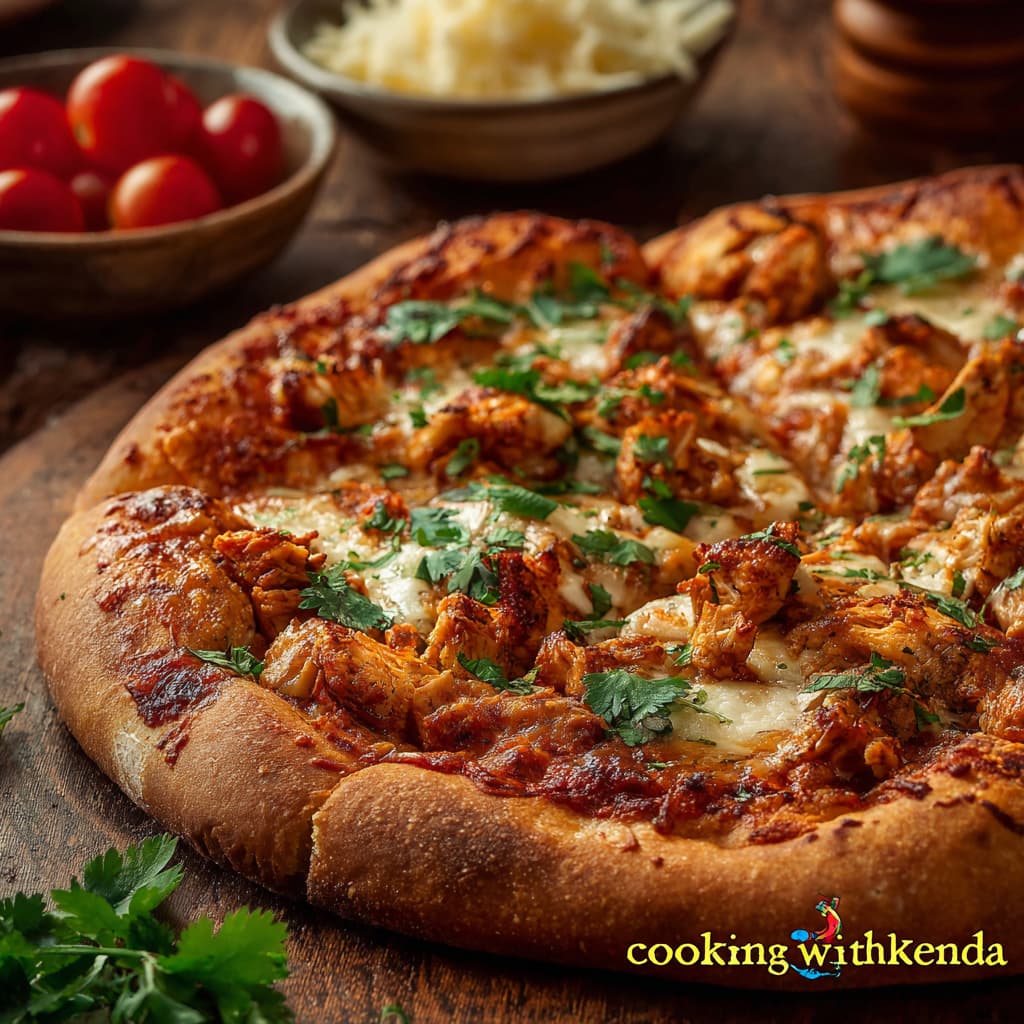Spiced, saucy, and deeply comforting, Moroccan Meatballs are a dish that brings together the warm allure of North African spices with the heartiness of a rustic, home-cooked meal. These meatballs—known in Morocco as kefta—are simmered in a richly seasoned tomato sauce laced with cumin, paprika, cinnamon, and fresh herbs.
Whether served over couscous, scooped with warm bread, or nestled on a bed of rice, Moroccan meatballs offer a deeply satisfying blend of flavor and texture. They’re the kind of dish that transforms humble ingredients into something exotic and memorable.
What Makes Moroccan Meatballs Unique
Unlike Italian or Swedish meatballs, Moroccan meatballs are all about spices, aroma, and slow-cooked depth. The meat is often mixed with:
-
Ground cumin and coriander for earthy richness
-
Paprika for warmth
-
Fresh cilantro or parsley for brightness
-
Optional harissa or chili for heat
-
Cinnamon for a subtle, sweet undertone
They’re simmered in a tomato-based sauce that’s bold and complex, often finished with a few cracked eggs for a classic Moroccan twist called Kefta Mkaouara—a tagine favorite.
Ingredients (Serves 4–6)
For the Meatballs
-
500g ground beef or lamb (or a mix)
-
1 small onion, finely grated
-
2 cloves garlic, minced
-
1 tsp ground cumin
-
1 tsp paprika
-
½ tsp ground coriander
-
½ tsp ground cinnamon
-
Salt and black pepper to taste
-
2 tbsp chopped parsley or cilantro
-
1 egg (optional for binding)
-
2 tbsp breadcrumbs (optional for texture)
For the Tomato Sauce
-
1 tbsp olive oil
-
1 onion, finely chopped
-
2 cloves garlic, minced
-
1 can (400g) crushed tomatoes or fresh tomato purée
-
1 tsp ground cumin
-
1 tsp sweet paprika
-
½ tsp chili flakes or harissa paste (optional)
-
Salt and pepper to taste
-
Water or broth to adjust consistency
-
Fresh herbs for garnish (cilantro, mint, or parsley)
Step-by-Step Instructions
1. Mix the Meatball Ingredients
In a large bowl, combine all meatball ingredients. Mix gently by hand until just combined—avoid overworking the mixture. Form into small balls (roughly 1 inch in diameter) and set aside.
2. Brown the Meatballs (Optional but Recommended)
In a large skillet or pot, heat a splash of olive oil over medium heat. Brown the meatballs on all sides, working in batches if needed. Remove and set aside. This step adds flavor, though the meatballs can be cooked entirely in the sauce.
3. Make the Sauce
In the same pan, add more olive oil if needed and sauté the chopped onion until soft and translucent. Add garlic, cumin, paprika, and chili flakes or harissa. Cook for 1 minute until fragrant. Stir in the tomatoes and season with salt and pepper. Let simmer for 10–15 minutes until the sauce thickens slightly.
4. Simmer the Meatballs
Return the meatballs to the pan and gently stir to coat with the sauce. Cover and simmer for 20–25 minutes, stirring occasionally, until the meatballs are fully cooked and infused with flavor.
Optional: Add Eggs (Traditional Touch)
Crack 2–4 eggs into the sauce during the final 5–7 minutes of cooking. Cover and cook until the egg whites are set but yolks are still soft—just like in a shakshuka.
What to Serve with Moroccan Meatballs
This dish pairs well with:
-
Fluffy couscous with herbs and lemon
-
Steamed basmati rice
-
Warm pita or khobz (Moroccan bread)
-
Roasted vegetables like carrots, zucchini, and peppers
-
A crisp salad with arugula and citrus dressing
Garnish with chopped herbs, toasted almonds, or a spoonful of yogurt for contrast.
Tips for Perfect Moroccan Meatballs
-
Use fresh herbs generously for brightness
-
Brown the meatballs lightly for added texture and deeper flavor
-
Let the sauce simmer low and slow to deepen its taste
-
Adjust the spice level: Add harissa for heat, or cinnamon for warmth
-
Double the recipe: They freeze beautifully for future meals
Flavor Variations and Add-Ons
Once you’ve mastered the base recipe, you can try:
-
Adding chopped olives or preserved lemon to the sauce for extra tang
-
Mixing in grated zucchini to the meat mixture for moisture
-
Swapping beef for lamb for a more traditional, gamey flavor
-
Serving with labneh or tzatziki for a creamy side
-
Finishing with toasted pine nuts for texture and luxury
Make-Ahead & Freezer Tips
Moroccan meatballs are ideal for batch cooking and storage:
-
Refrigerate cooked meatballs in sauce for up to 4 days
-
Freeze uncooked or fully cooked meatballs for up to 2 months
-
Reheat gently in a covered skillet with a splash of broth or water
Perfect for make-ahead dinners, lunchboxes, or potluck contributions.
A Dish That Tells a Story
In Moroccan households, kefta with tomato sauce is a beloved staple—often cooked in a tagine over charcoal, surrounded by family, and served communally with bread for scooping. This dish carries more than just flavor—it holds tradition, warmth, and hospitality.
Bringing it into your own kitchen is a way to experience a rich culture through taste—no passport required.
Aromatic Spices: The Soul of Moroccan Cooking
What makes Moroccan cuisine so enchanting is its masterful use of spices. In this recipe, spices aren’t just seasoning—they are the backbone of the dish. The warm earthiness of cumin, the gentle sweetness of cinnamon, and the smokiness of paprika work together to create an aroma that’s instantly recognizable and deeply nostalgic.
The result is a dish that tastes like it’s been simmering in a tagine over coals in a Fez courtyard, even if you’re just cooking on your home stovetop.
Moroccan Meatballs as a Celebration Dish
While meatballs might seem everyday, in Moroccan homes they often take center stage during:
-
Friday lunches (a traditional family meal)
-
Ramadan iftar tables, served with warm bread and dates
-
Eid celebrations, alongside couscous and preserved lemon
-
Special guests visits, when kefta is served in the most fragrant tomato sauce
It’s a dish that brings people together—not just because it’s delicious, but because it embodies the generous hospitality of Moroccan culture.
Health Benefits and Nutritional Balance
These meatballs aren’t just tasty—they’re nutritious:
-
High in protein thanks to the beef or lamb
-
Rich in iron and zinc, important for energy and immunity
-
Tomato-based sauce provides antioxidants like lycopene
-
Herbs and spices offer anti-inflammatory properties
-
You can make it lower-carb or gluten-free by skipping breadcrumbs or using almond flour
By pairing with couscous and a green salad, you create a meal that’s flavorful, colorful, and balanced.
How to Turn the Dish into a Mezze Spread
You can serve Moroccan meatballs not just as a main course, but as part of a mezze (small plate) spread. Here’s how:
-
Shape smaller, bite-sized meatballs
-
Serve on skewers with a drizzle of harissa-yogurt
-
Pair with hummus, baba ganoush, olives, and flatbread
-
Add pickled turnips or preserved lemons for contrast
-
Set out bowls of pomegranate seeds or dates for sweetness
This presentation is perfect for gatherings, iftar, or tapas-style dinners with a North African twist.
Serving Moroccan Meatballs for Brunch
In Moroccan tradition, Kefta Mkaouara (meatballs in tomato sauce with poached eggs) is often enjoyed mid-morning or as a luxurious brunch dish. To do this:
-
Crack fresh eggs into the tomato sauce in the last 5–10 minutes
-
Cover and simmer until the whites are set but yolks remain soft
-
Serve the dish directly from the pan with crusty khobz or baguette
-
Add olives, mint tea, and fruit on the side for a full Moroccan brunch table
It’s an elegant, nourishing way to start the day—comforting, spicy, and soul-warming.
Vegan & Vegetarian Variations
For plant-based eaters, you can easily adapt this recipe:
-
Replace meat with mashed lentils, chickpeas, or black beans
-
Use flaxseed meal or oats as a binder instead of eggs and breadcrumbs
-
Add finely grated carrot or zucchini for texture
-
Simmer the vegan meatballs in the same richly spiced tomato sauce
-
Serve with cauliflower couscous or rice for a low-carb twist
The result is a dish that’s earthy, spiced, and entirely meat-free—but still deeply satisfying.
A Dish That Evolves with You
Perhaps what makes Moroccan meatballs so special is how versatile and personal they are. Whether you:
-
Add a squeeze of lemon
-
Finish with fresh mint
-
Blend the sauce for smoothness
-
Simmer longer for depth
-
Bake instead of pan-fryingthis dish
adapts to your style and your table.
It can be a weeknight staple or a celebratory centerpiece. It’s familiar enough for comfort, but exotic enough to excite. And no matter how you serve it, it always feels like a gift from the heart.
Print
Moroccan Meatballs
- Total Time: 45 minutes
- Yield: 4 servings 1x
Description
Moroccan Meatballs are juicy, boldly spiced bites simmered in a fragrant tomato sauce infused with cumin, paprika, cinnamon, and herbs. Made with ground beef or lamb, these meatballs are perfect served with couscous, rice, or warm flatbread. It’s a comforting dish full of North African warmth and vibrant flavor.
Ingredients
For the Meatballs:
-
1 lb ground beef or lamb
-
1/4 cup breadcrumbs
-
1 egg
-
2 tbsp chopped fresh parsley or cilantro
-
2 cloves garlic, minced
-
1 tsp ground cumin
-
1/2 tsp ground cinnamon
-
1/2 tsp ground coriander
-
1/2 tsp paprika
-
1/2 tsp salt
-
1/4 tsp black pepper
For the Tomato Sauce:
-
1 tbsp olive oil
-
1/2 onion, finely chopped
-
2 cloves garlic, minced
-
1 (14 oz) can crushed tomatoes
-
1 tsp ground cumin
-
1/2 tsp smoked paprika
-
1/4 tsp ground cinnamon
-
Salt and pepper to taste
-
1/4 cup water or broth
-
Chopped parsley or cilantro, for garnish
Instructions
-
In a bowl, combine all meatball ingredients and mix just until combined. Form into small meatballs (about 1 inch).
-
Heat olive oil in a skillet over medium heat. Add meatballs and brown on all sides, about 5–6 minutes total. Remove and set aside.
-
In the same skillet, add a bit more oil if needed. Sauté onion and garlic until soft, about 3–4 minutes.
-
Add crushed tomatoes, cumin, paprika, cinnamon, salt, pepper, and water or broth. Stir and bring to a simmer.
-
Return meatballs to the pan. Cover and simmer on low heat for 20–25 minutes until the meatballs are cooked through and the sauce thickens.
-
Garnish with fresh parsley or cilantro and serve hot.
Notes
- Prep Time: 15 minutes
- Cook Time: 30 minutes





